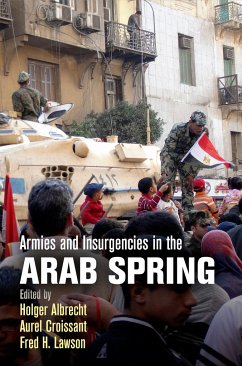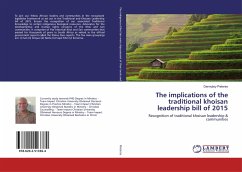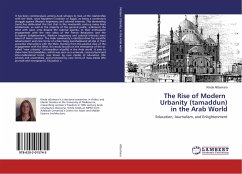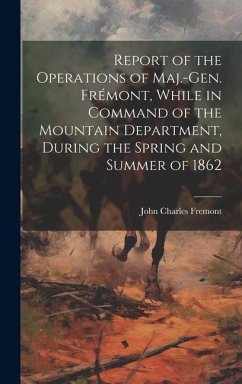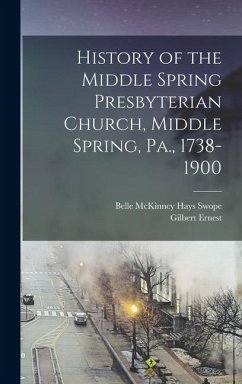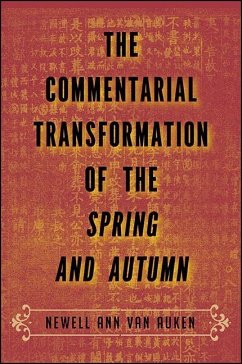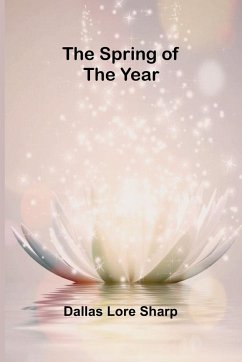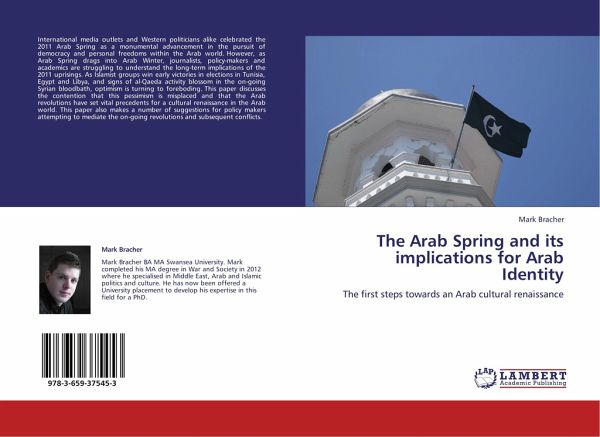
The Arab Spring and its implications for Arab Identity
The first steps towards an Arab cultural renaissance
Versandkostenfrei!
Versandfertig in 1-2 Wochen
33,99 €
inkl. MwSt.

PAYBACK Punkte
17 °P sammeln!
International media outlets and Western politicians alike celebrated the 2011 Arab Spring as a monumental advancement in the pursuit of democracy and personal freedoms within the Arab world. However, as Arab Spring drags into Arab Winter, journalists, policy-makers and academics are struggling to understand the long-term implications of the 2011 uprisings. As Islamist groups win early victories in elections in Tunisia, Egypt and Libya, and signs of al-Qaeda activity blossom in the on-going Syrian bloodbath, optimism is turning to foreboding. This paper discusses the contention that this pessim...
International media outlets and Western politicians alike celebrated the 2011 Arab Spring as a monumental advancement in the pursuit of democracy and personal freedoms within the Arab world. However, as Arab Spring drags into Arab Winter, journalists, policy-makers and academics are struggling to understand the long-term implications of the 2011 uprisings. As Islamist groups win early victories in elections in Tunisia, Egypt and Libya, and signs of al-Qaeda activity blossom in the on-going Syrian bloodbath, optimism is turning to foreboding. This paper discusses the contention that this pessimism is misplaced and that the Arab revolutions have set vital precedents for a cultural renaissance in the Arab world. This paper also makes a number of suggestions for policy makers attempting to mediate the on-going revolutions and subsequent conflicts.




